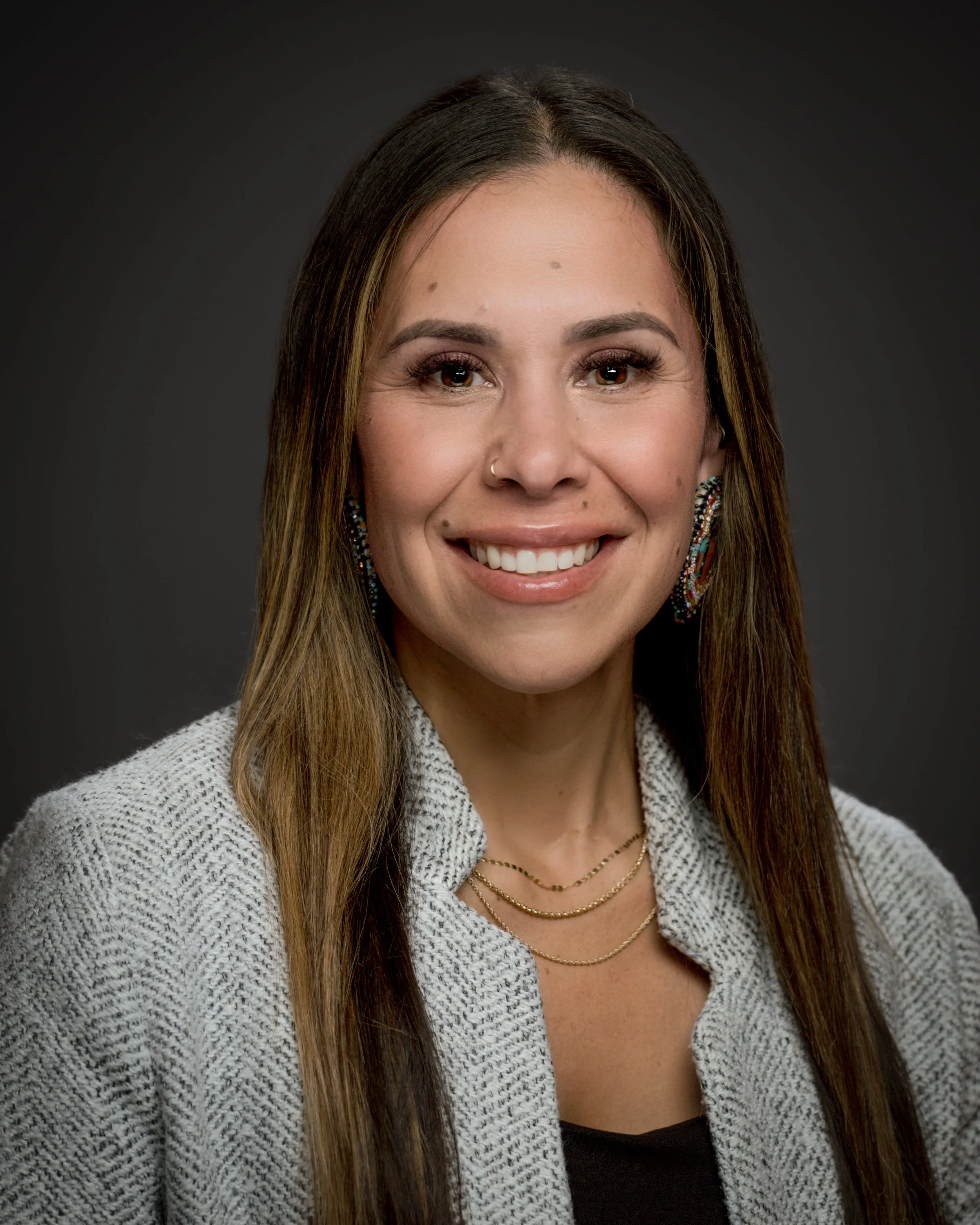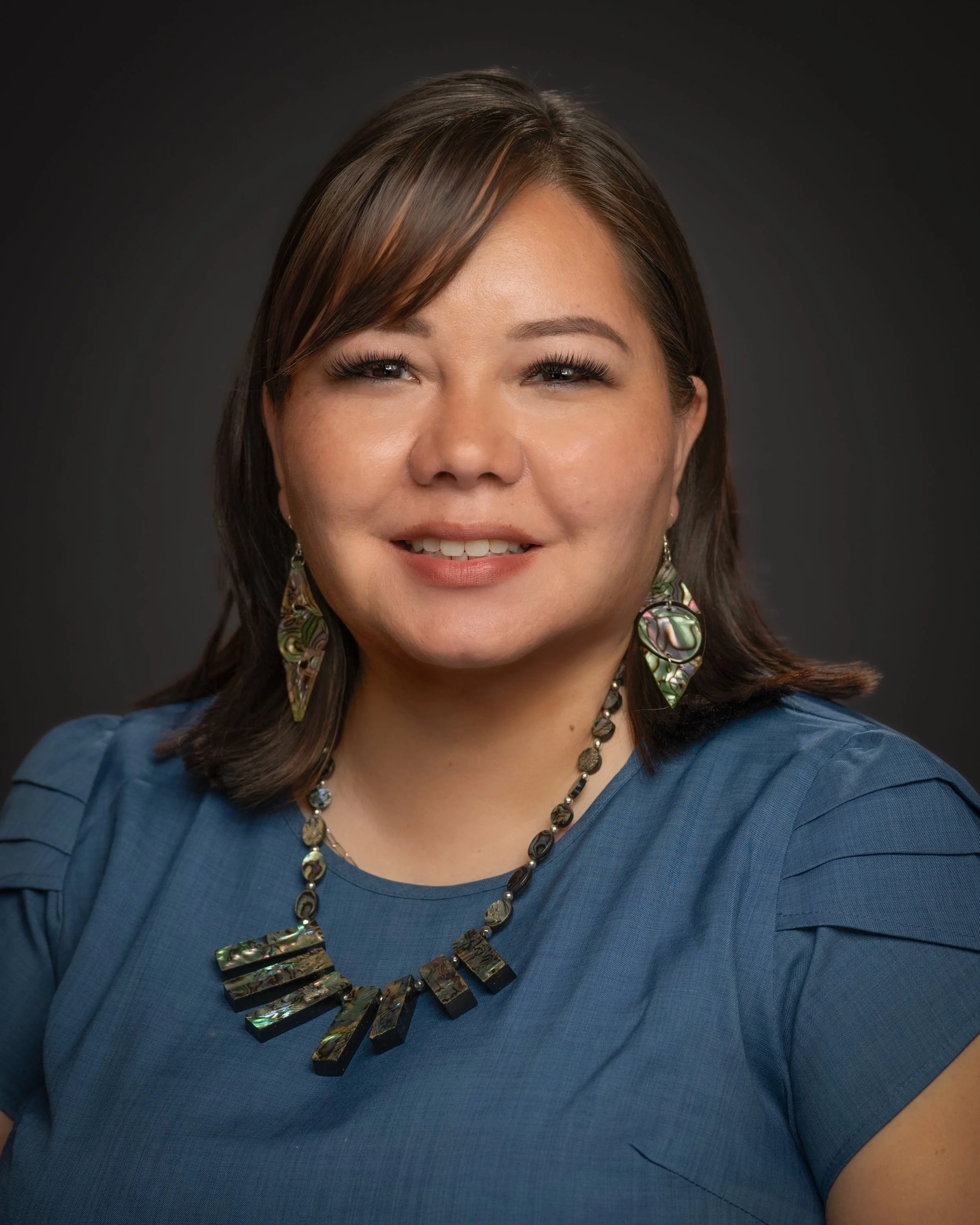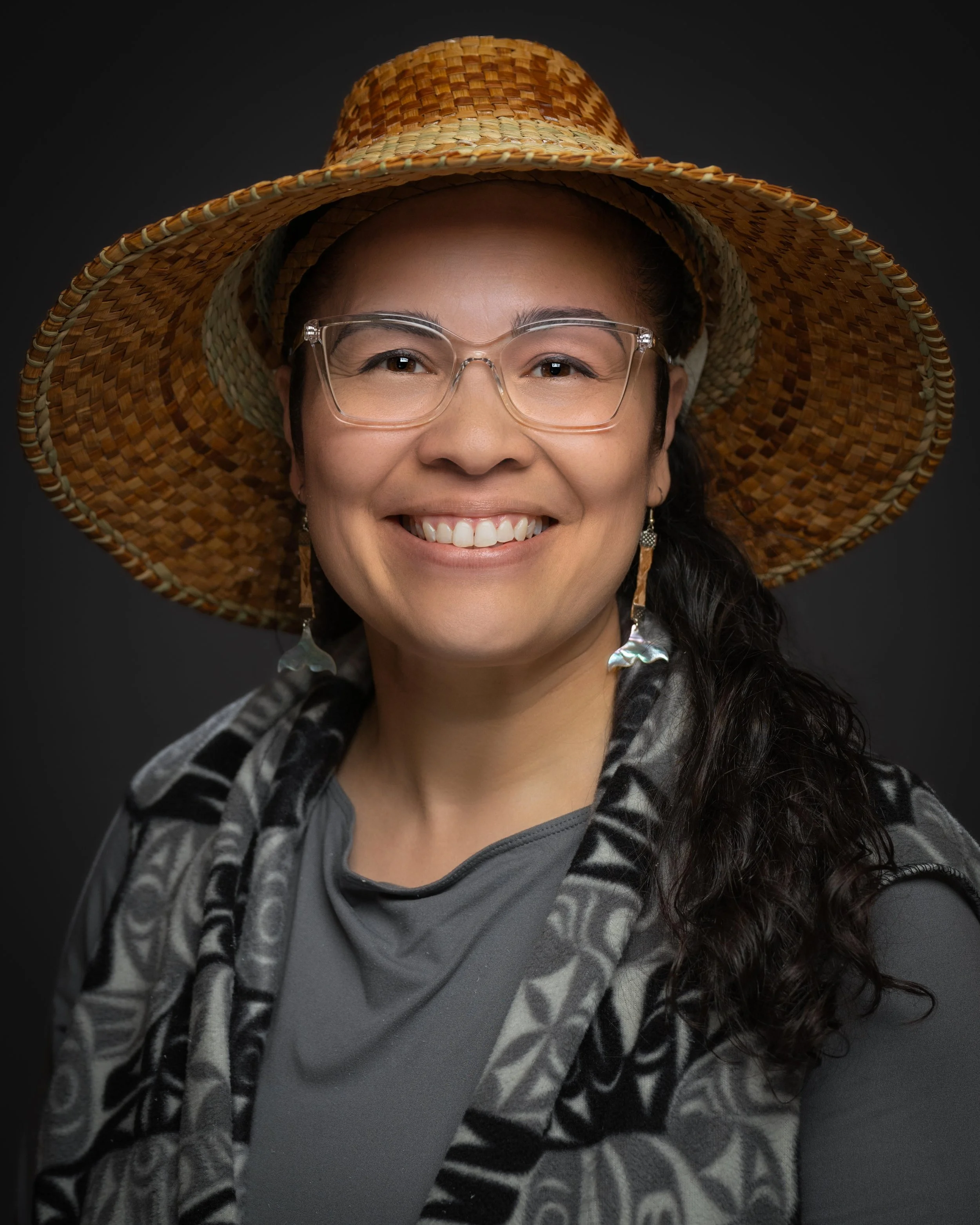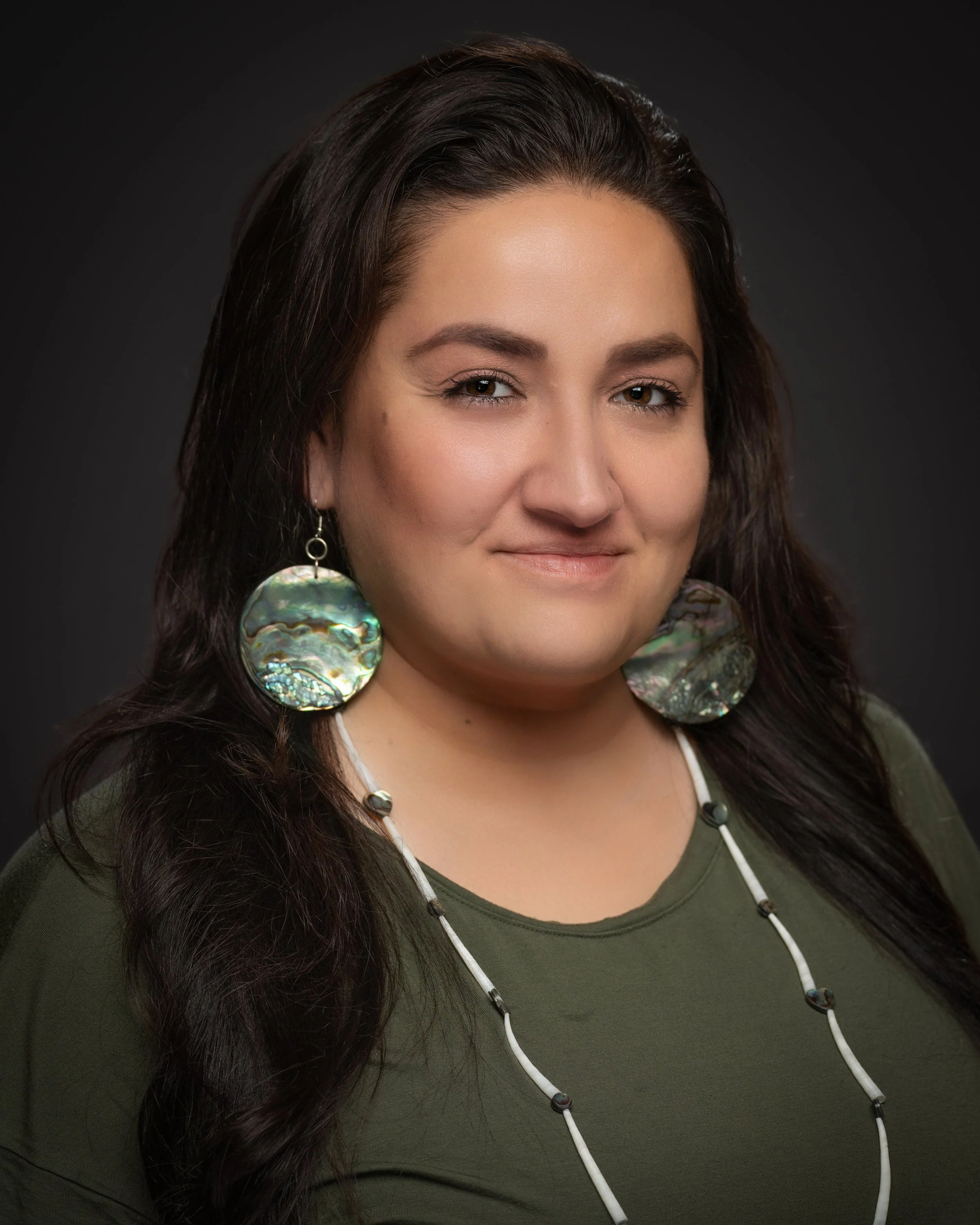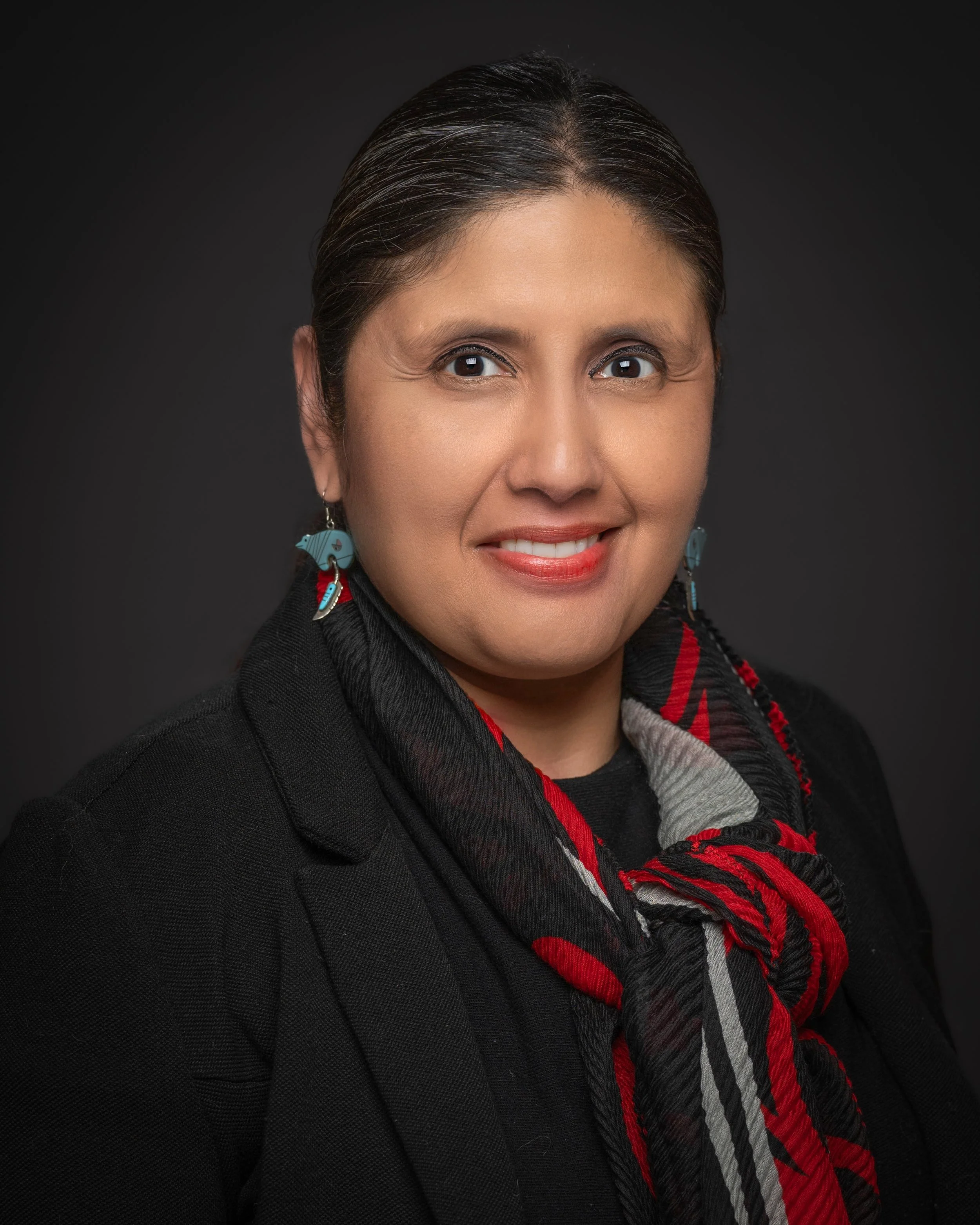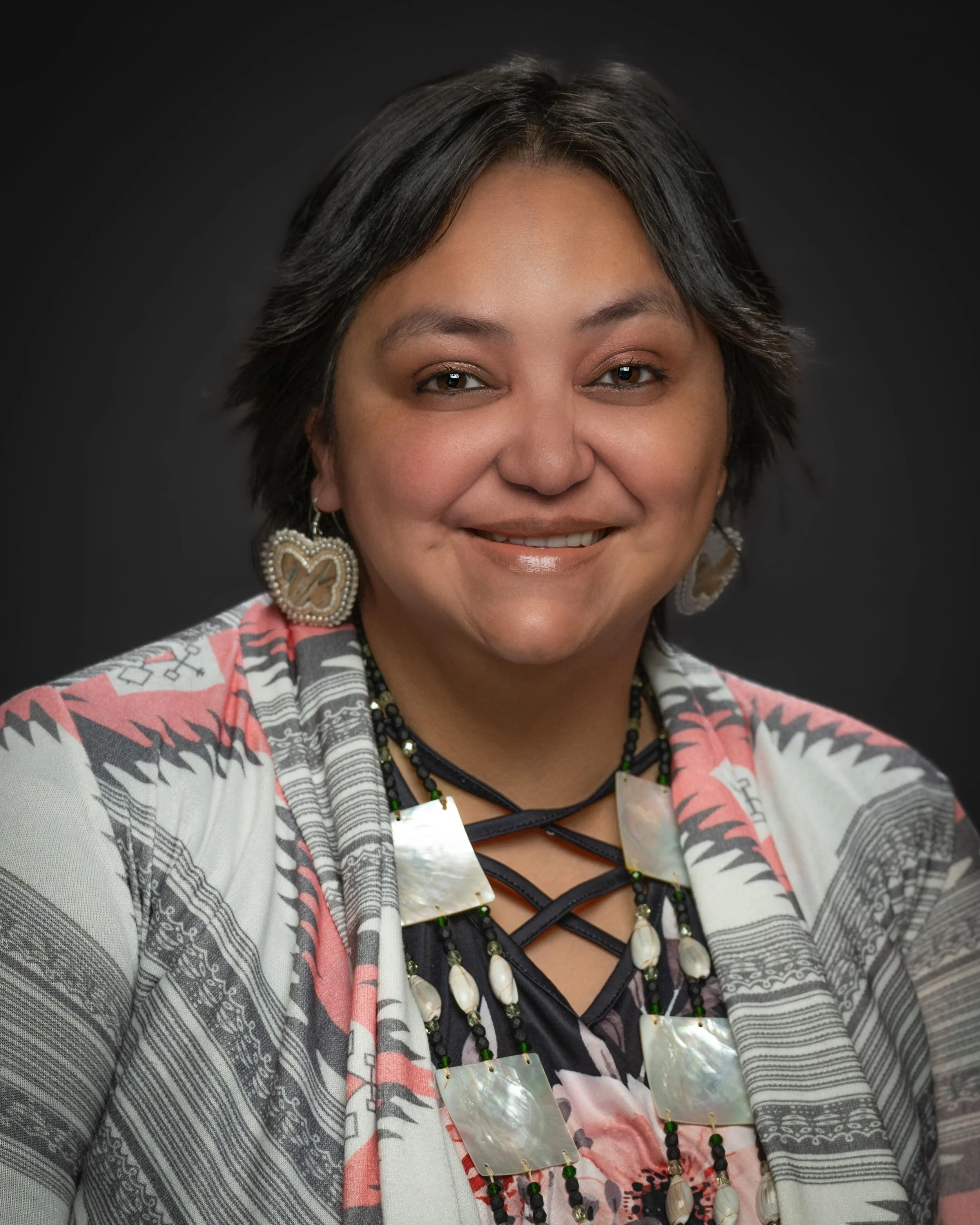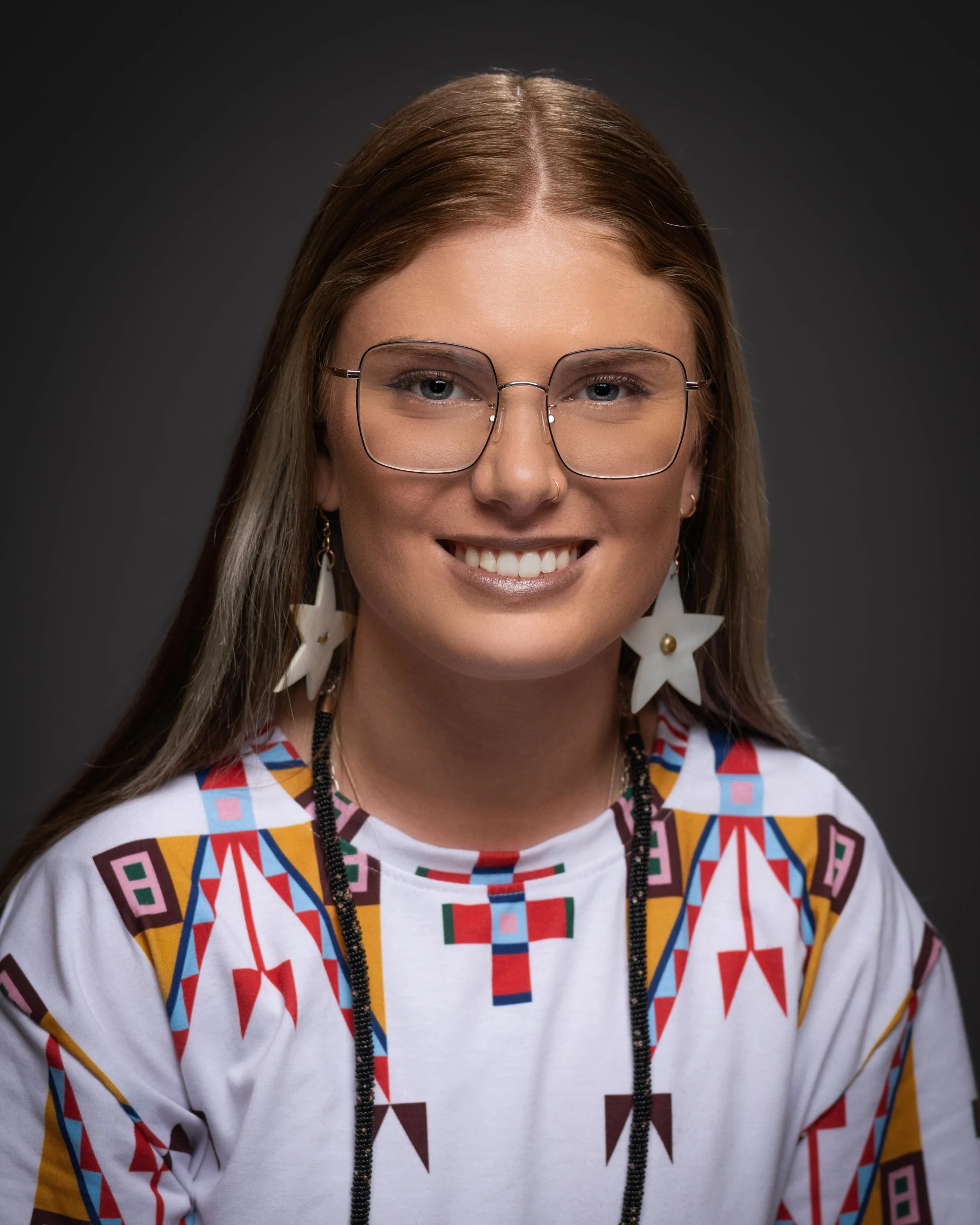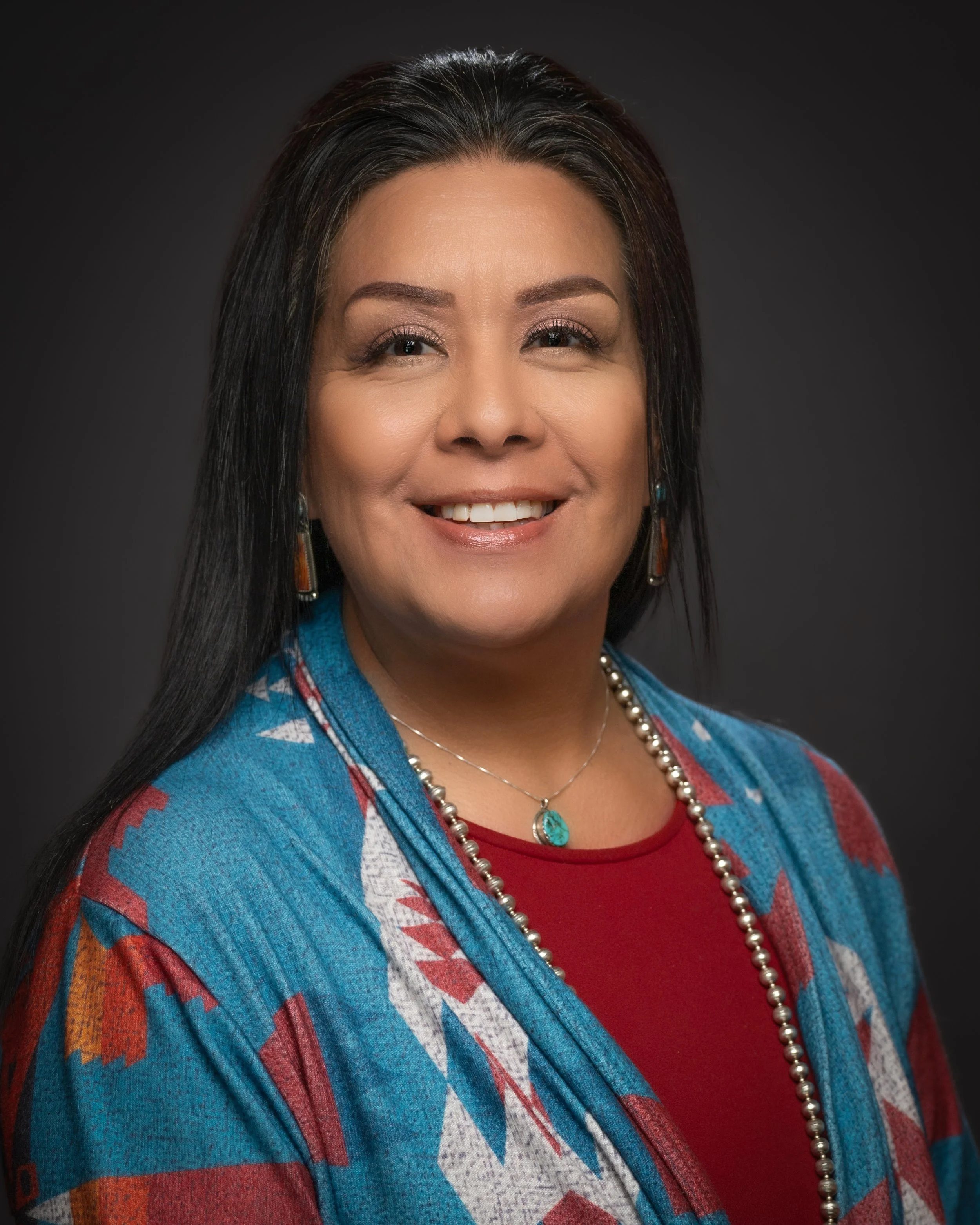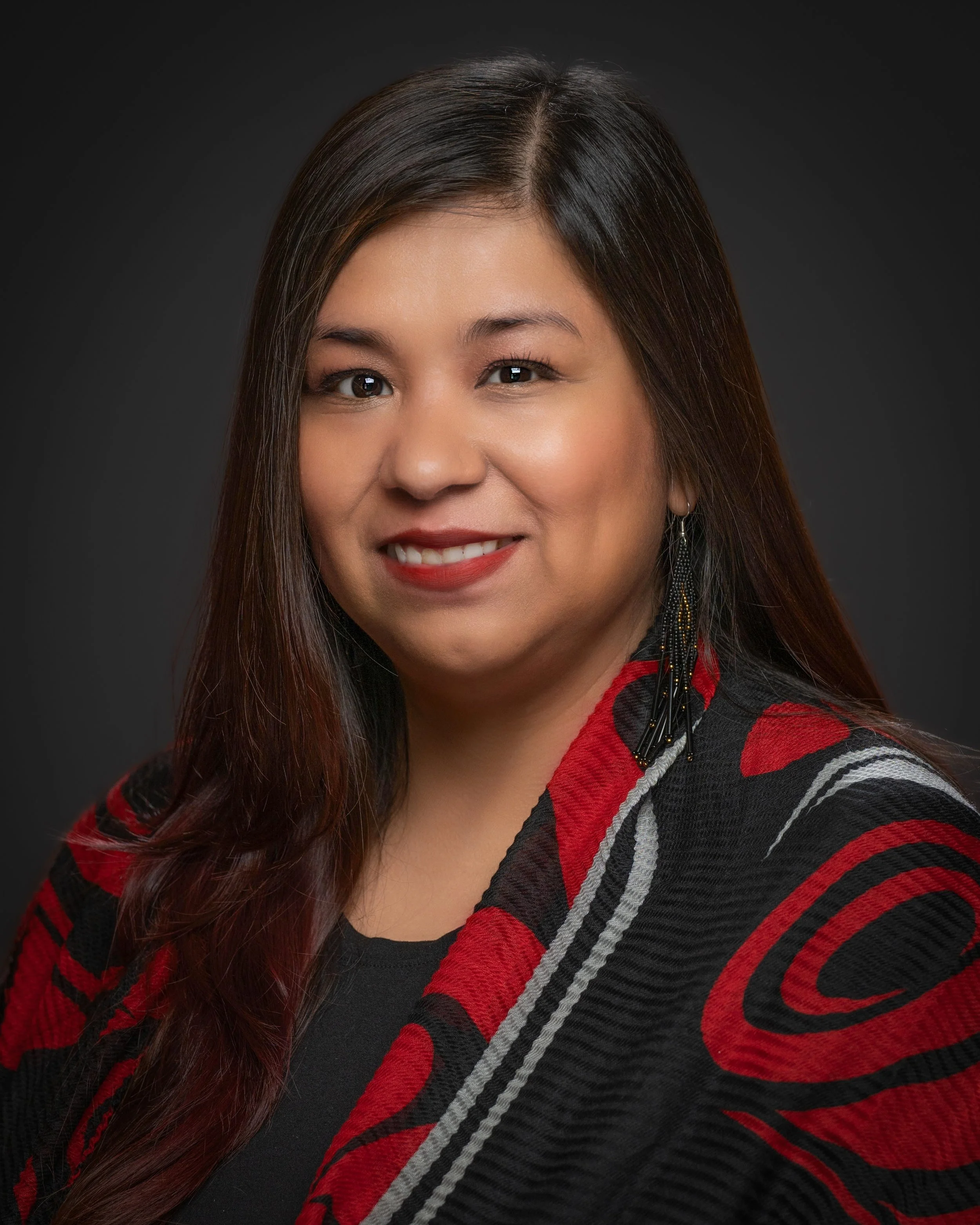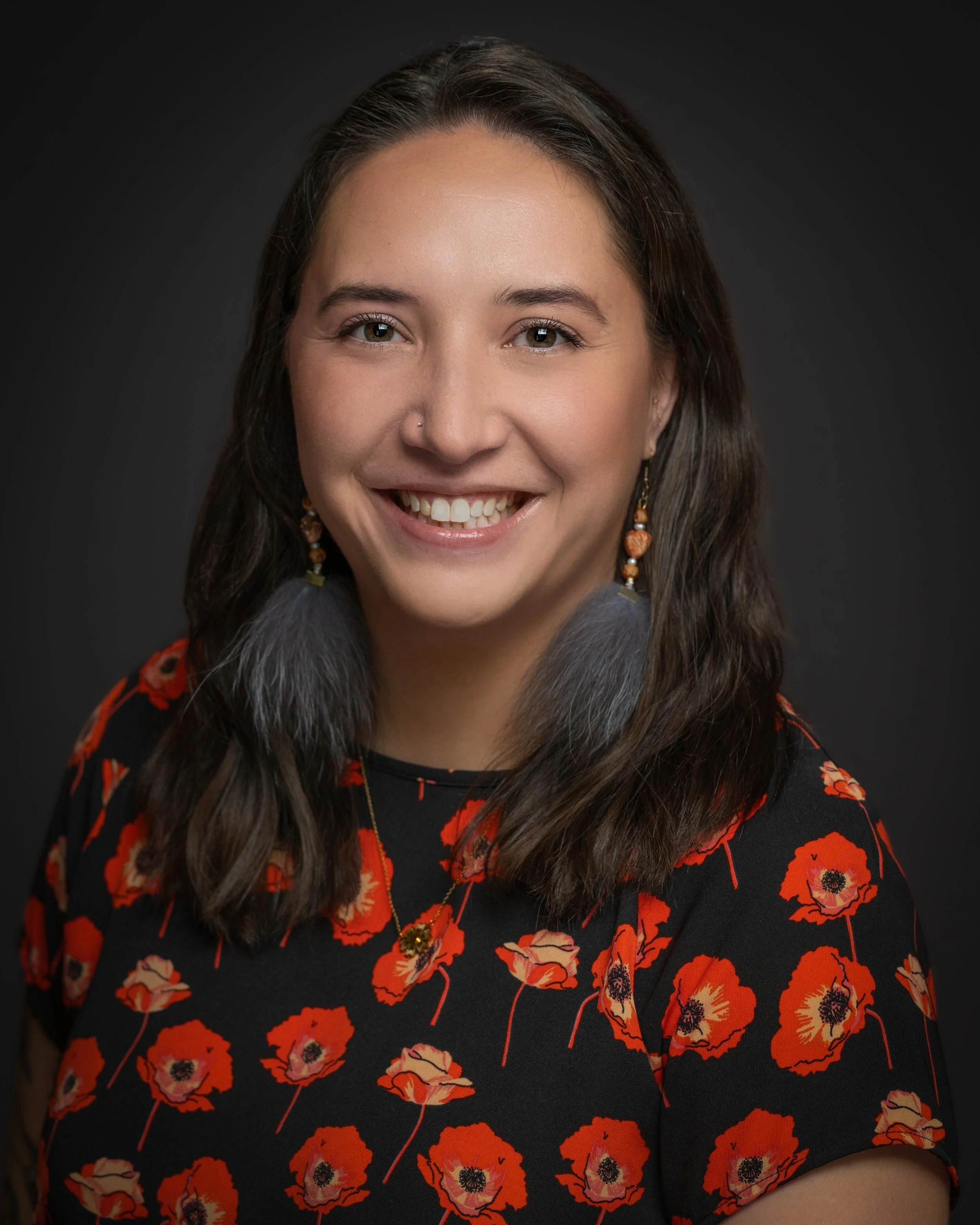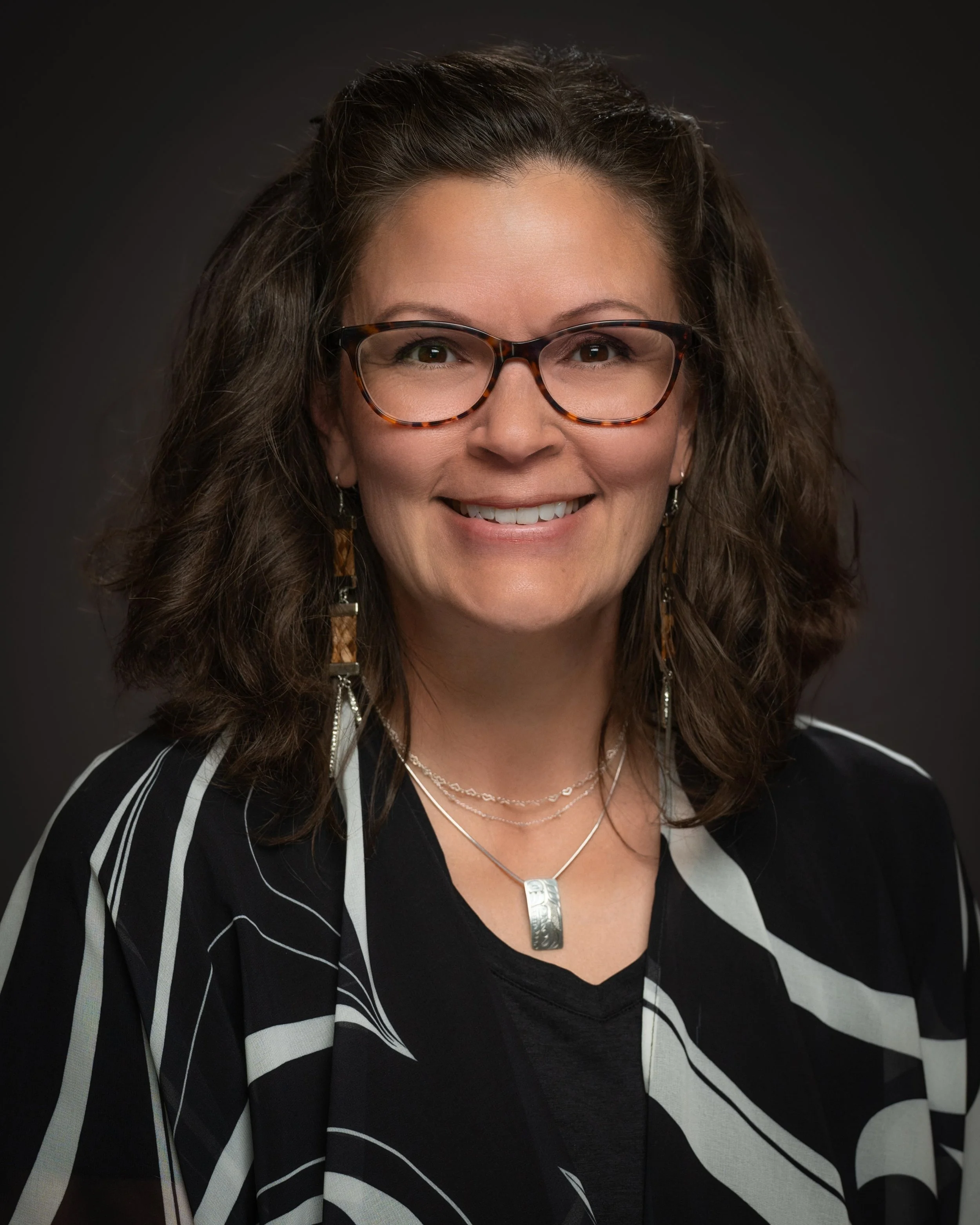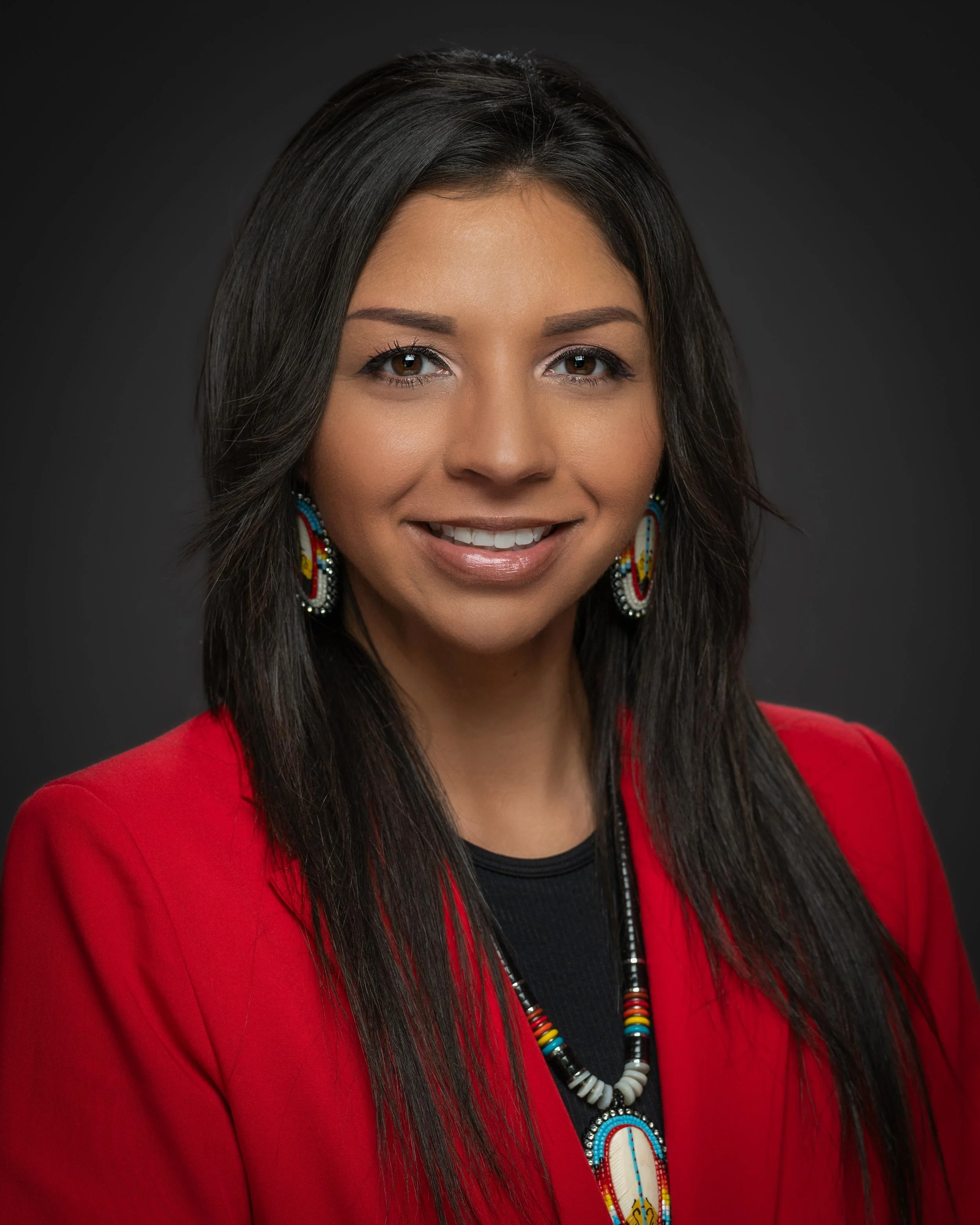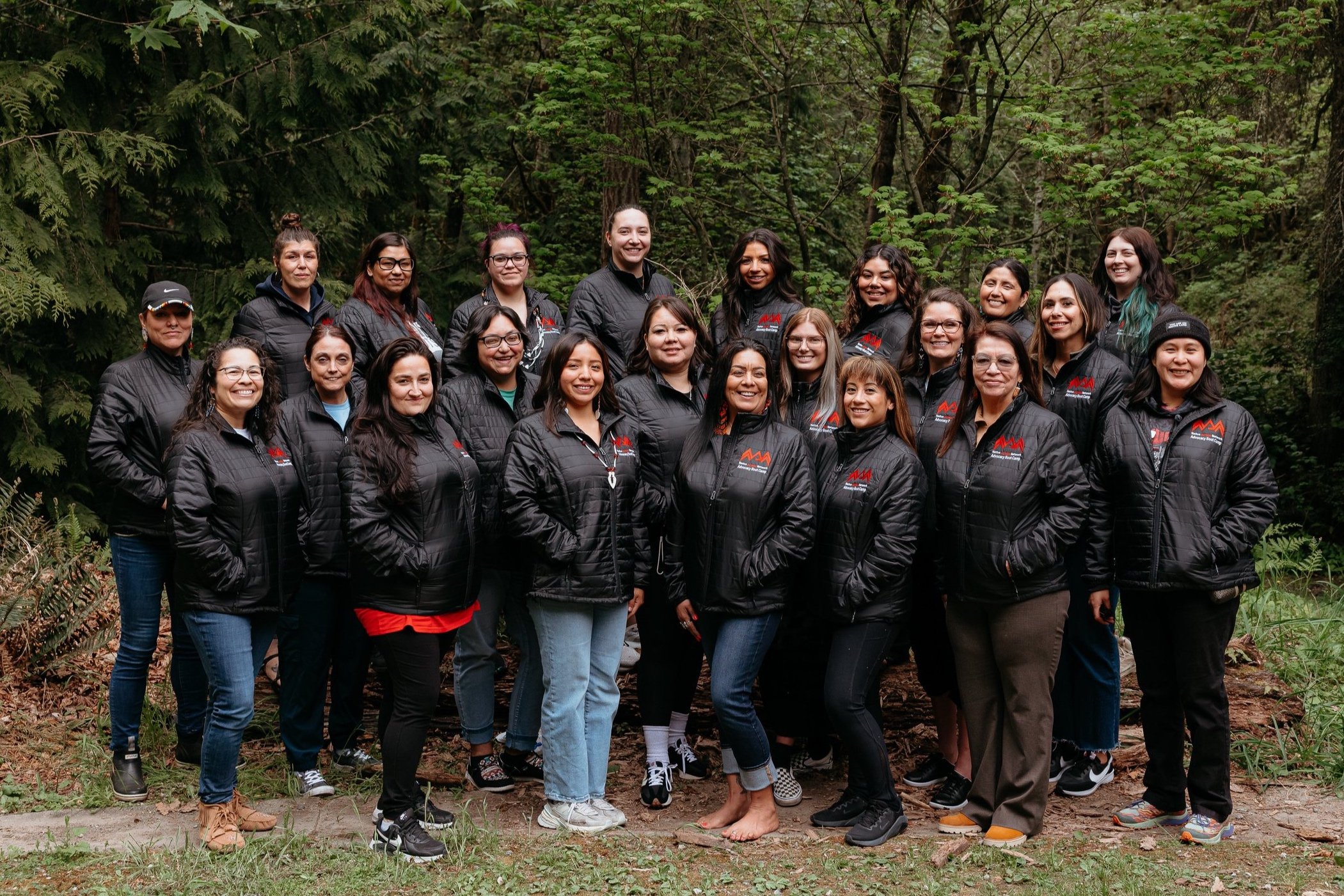
Advocacy Boot Camp Cohort 4
The fourth Advocacy Boot Camp brings together 22 womxn from 17+ tribes.
Cassie Anderson, Chippewa Cree
Cassie L. Anderson (she/her) is the Director of the Office of Tribal Relations at Washington State Department of Children, Youth, and Families (DCYF). A Citizen of the Chippewa Cree Tribe of the Rocky Boy’s Reservation, Cassie spent part of her childhood there before relocating to Spokane, Washington. She holds both a Bachelor of Science and a Master of Science in Criminal Justice and Criminology from Portland State University.
Cassie’s career has been dedicated to serving tribal communities, with a strong focus on child welfare and advocacy. She began her work in the non-profit sector with the NATIVE Project before joining Children’s Administration in 2006. Over the next decade, she worked within the Indian Child Welfare (ICW) Unit in various roles, including CPS, CFWS, and FVS, eventually becoming an ICW social work supervisor overseeing multiple programs. In 2017, she transitioned to the Healing Lodge of the Seven Nations, where she served as the Program and Support Services Director for 6+ years, developing culturally responsive programs for Native youth. In 2023, she returned to state service (DCYF) as the Operations Manager for the Office of Tribal Relations, where she played a role in strengthening government-to-government partnerships.
As an ABC cohort member, Cassie seeks to expand her leadership skills, build collaborative networks, and develop policies that honor tribal sovereignty while improving outcomes for Native children and families. She is deeply committed to courageous conversations, advocacy, and fostering solutions that lead to meaningful, lasting change.
Andrea Bob, Puyallup
Andrea Bob is a proud member of the Puyallup Tribe of Indians and resides in Tacoma, Washington. She currently serves as a Data Analyst in the Communications Department of the Puyallup Tribe, where she utilizes data to improve communication strategies, enhance outreach, and ensure Tribal members stay informed. She was one of the first employees to join the Tribe’s Communications Department, playing a foundational role in shaping its growth and impact. With a strong background in communications, event coordination, and public relations, she has contributed to major community initiatives, including the annual Puyallup Tribal Pride events and Canoe Journey. As a member of the Puyallup Canoe Family, she was honored to assist in the work of helping the Tribe host the 2018 and 2024 Canoe Journeys.
As a first-generation college graduate, she earned a Bachelor of Arts in Communication from the University of Washington, Tacoma. She is currently pursuing a Master of Science in Business Analytics at the University of Washington, deepening her skills in data analysis to better support her Tribe’s strategic goals. Over the past 14 years, she has served her Tribe in a variety of roles, gaining experience in communications, event planning, data analysis, and community engagement. Her heart’s work is to assist in maintaining and strengthening communication between her Tribe and its members, ensuring they have access to important information and resources.
As an ABC cohort member, she hopes to grow as a leader, build connections with fellow Native changemakers, and gain deeper insight into policy to better serve her community. Dedicated to strengthening Indigenous communities through resilience, leadership, and representation, she is committed to using her skills to keep Tribal members informed and engaged.
Alaina Capoeman, Quinault
Alaina Capoeman (Xoputsee), Quinault citizen, resides in the usual and accustomed area of the Quinault people. She is a Tribal Relations Specialist for the U.S. Census Bureau with a Masters in Business Administration, American Indian Entrepreneurship. Alaina is passionate about exercising treaty rights, advocating for MMIP, and strengthening the Native vote. She will expand on the skills and network she built while employed by NAN.
Dorothy Cook, Quinault
Dorothy is a proud member of Quinault Indian Nation, she works as a teacher's assistant for Quinault Early learning Queets site and serves on the Queets Clearwater School board since 2016. She currently attends Grays Harbor College and is set to graduate in 2026 with a A.A. in Early Childhood Education. In 2024 Dorothy had the opportunity to write and publish a children's book called Fire Water, that was based on real life experiences dealing with alcoholism and the foster care system. Dorothy hopes to attend Native Action Network Advocacy Boot Camp to build leadership skills, self-confidence, and skills in public speaking.
Aliana Diaz, Tulalip
Aliana is proud citizen of King County with a passion to bring attention and solutions forward for Indigenous and marginalized communities she identifies with. She is an intersectional Feminist of mixed ancestry, a member of the LGBTQIA+ community, a proud mother of two Tulalip Tribal members, a wife, and a proud Indigenous Sister. She the Recording Secretary for the International Union of Elevator Constructors, Local 19.
Aliana is an Outreach Advocate for all underrepresented community members and collaborates with the Native Indian/Native American communities, TERO's, WIAO 166/477, Native Nonprofits, intersectional Union cross collaboration, LGBTQIA+, Homeless youth and Foster youth. Her work history including being an entrepreneur, working at Tulalip Casino, LIUNA 242, and IUEC 19 has given her a strong skillset of business organizational methods, standard operating procedures, and remediation skills. Aliana has won awards including: Union Activist of the Year 2024, WA Women in the Trades Award, NABTU Tradeswomen TradesHeros Awardee. She is driven, motivated, and ready to continue the work for our Indigenous community.
With a drive to perform and provide positive outcomes for her community and the working people, Aliana wants to learn and do more for our Indigenous Community. As an ABC cohort member, Aliana looks forwards to working on communication, strategy and servant Leadership skills.
Desiree Rose Fagan, Duwamish/Tulalip
Desiree Rose Fagan is a proud member of the Duwamish Tribe of Indians. Her father’s people are Tulalip as well as Quinault. Desiree was born in her ancestral Duwamish homelands, Seattle WA. She has always resided and lived in this region. She is a wife and a mother of her four beautiful children.
Desiree's involvement in her tribal community comes from a deeply rooted passion to honor the rich culture and traditions of her ancestors and lead in a good way for the next generation. Serving on her tribal council, DTS board of directors, and currently DRCC board of directors are a few examples of how Desiree has served her community with honor.
Environmental advocacy remains a steady component in her work, with the restoration of the Duwamish River at the forefront, as well as Social Justice for her people with a focus on treaty rights being upheld on the county, state and federal levels.
As an Advocacy Boot Camp cohort member, Desiree's goals are to achieve life long relationships with like minded empowered women. She hopes to gain more experience in navigating colonial constructs we find ourselves surrounded in. Cultivating relationships will only help her to amplify her voice. She believes that participating in ABC will provide her with the knowledge and experience to achieve these goals.
Kariel Galbraith (K’iteix’), Tlingit
Kariel Galbraith (K’iteix’) is Tlingit, enrolled in the Central Council of Tlingit and Haida Indian Tribes of Alaska. She is Dakl’aweidi (Killerwhale Clan) from Keet Gooshí Hít (Dorsal Fin House) in Tlákw.aan (Klukwan, AK). She was born and raised in Southeast Alaska, and currently lives in Seattle, working for an urban Native non-profit as an events coordinator.
A writer by training, Kariel holds a bachelor’s degree from the University of Washington in English with Honors, and American Indian Studies. She serves as First American Art Magazine’s Alaska Native 2024-2025 writing fellow and is passionate about writing professionally to improve public knowledge on the vibrance of Native art and culture. During her time at the UW, Kariel mentored first-year Native students. She connected students to academic, community, and cultural resources to support their educational success. In addition to writing, Kariel is passionate about fiber arts. She has shared the art of weaving with Native students through workshops held at wǝɫǝbʔaltxʷ, UW classrooms, and the Burke Museum.
At the heart of her creative work is the determination to connect people with art, allowing creation to be a healing space of resistance. She believes that Advocacy Boot Camp is the next step in her leadership journey, sharpening skills in networking and navigating institutional systems to bring meaningful change in the Native communities that she works, teaches, and serves in.
Renee Hernandez Greenfield, Puebloan - Taos, San Ildefonso and Cochiti; Chichimeca
Renee Hernandez Greenfield is a proud descendant of the Cochiti, San Idelfonso and Taos Pueblos of New Mexico and the Indigenous communities of Guanajuato and Jalisco, Mexico. Residing in Port Orchard, WA within Kitsap County; Legislative District 26, - Renee is deeply committed to advocating for Indigenous rights, education, and community empowerment.
Currently, Renee works as a birth to three infant and toddler special education home visitor with Holly Ridge Center and teaches Early Childhood Education at Tacoma Community College, supporting future educators and ensuring inclusive learning environments for young children. With an M.S. in Psychology and a B.A. in Liberal Arts, Renee brings a strong academic foundation in human development, social justice, and policy analysis.
As an ABC cohort member, Renee seeks to strengthen her leadership skills, build connections with other Indigenous changemakers, and develop strategies to protect tribal sovereignty, advance equity in education, and uplift Indigenous voices in policymaking. By deepening her knowledge and network, Renee hopes to strengthen her connection to and understanding of the issues impacting Indigenous communities across Washington; build relationships that raise awareness of Indigenous matters; and connect with others working to create and expand indigenous spaces within state and local governments.
Vanessa Kowoosh, Quinault
Vanessa Kowoosh is a proud member of the Quinault Indian Nation. She works as the Queets Site Supervisor, Lead Teacher, and Bus driver for Quinault Early Learning. She received her associate degree in Early Childhood Education and is on track to graduate from the University of Washington Seattle with her bachelor's degree in Early Childhood Education in June 2025. Since starting her educational journey, she has made the Dean's List each quarter. She graduated from Legacy of Leadership in 2023, where she advanced her leadership skills and advocated for her community.
She works and lives on the small Queets reservation. In 2024 she had the opportunity to publish her book "It Takes a Village." Vanessa's goal of attending Advocacy Boot Camp is to enhance her confidence in becoming a leader within her community. She wants to serve her community and represent the Quinault Indian Nation as a strong, resilient, indigenous woman.
Nora Mix, Quinault
Nora Mix is a proud member of the Quinault Indian Nation and currently resides in Taholah, Washington, within the 24th Legislative District. As the Executive Director of the Táala Fund, a non-profit organization dedicated to promoting economic independence and financial literacy, Nora is committed to making a positive impact in her community. She earned her B.A. in Psychology in 2005 and has recently returned to academia, pursuing a Master's in Social Work at Hawaii Pacific University. Beyond her professional achievements, Nora is a dedicated mother of two adult sons who inspire her daily with their growth and accomplishments. In the future, she aspires to be an advocate for social and policy change related to Native American individuals and families. Nora’s hope is that participation in the 2025 Advocacy Bootcamp will help develop her leadership skills and confidence as a new professional. She envisions this experience as a stepping stone towards becoming a more effective and influential advocate for her community.
Lauren Moores, Iháŋkthuŋwaŋ Dakȟóta (Fort Peck Sioux Tribe)
Lauren Moores is an Iháŋkthuŋwaŋ Dakȟóta wiŋyaŋ that was born and raised on the lands that touch the x̌ʷəlč (Puget Sound), specifically those belonging to the bəqəlšuɬ, spuyaləpabš, and dxʷsqʷaliʔabš. She is a descendant of the Fort Peck, Standing Rock, and Yankton Sioux Tribes.
Lauren has worked in Indigenous public health since 2021 and completed her B.A. at The Evergreen State College’s Native Pathways Program (NPP) in 2023, with areas of emphasis in Native American, Environmental, and Health Studies. Her public health work has focused on critical topics such as COVID-19, diabetes, youth and elder services, substance use prevention, Indigenous data sovereignty, and Missing and Murdered Indigenous People (MMIP). She also has emerging interests in informatics and policy.
Beyond her work in public health, Lauren is a professional artist specializing in both traditional crafts and digital art. Her grandmother loves to tell the story of how she first picked up a pen and paper in the stroller.
As an ABC cohort member, Lauren hopes to further develop her leadership and public speaking skills, and explore her existing interests in policy and advocacy.
Leah Muasau, La Jolla Band of Luiseño Indians
She is an enrolled member of the La Jolla band of Luiseño Indians, from California. She has been a single mother most of her adult life to 4 beautiful children. She has 11 gorgeous grandchildren (9 living) whom she is a part of all their lives. She was fortunate to be able to raise 2 of her grandchildren for 3 years while their parents were getting well.
She was born in Southern California but currently lives in Washington state and has the privilege to serve as the Tribal Contracts Coordinator for the Washington Department of Social and Health Services. She is responsible for managing program funding and monitoring the consolidated contracts between DSHS and the 29 federally recognized Tribes of Washington state.
Her largest role is serving as an advocate for "Government-to-Government'' consultation, which allows for an open and free exchange of information and opinions among the parties that lead to the mutual understanding and comprehension for the benefit of all Indian people. She work directly with other governments in relations to the Governor's Centennial Accord, DSHS, policies, and state/tribal agreements by implementing government to government relationships, enhancing communication between the tribal governments and the state. She also participates in Pro-equity, anti-racism planning activities as a tribal voice and works to ensure that tribes are included.
She is an advocate for those that are single parents, mother of addiction (son is currently in recovery, one year clean), those that have lost children, and ensuring that native people have access to the resources that they need. She feels that her strongest strength is that she is a survivor of many of life's hurdles but understands that she is not the only one that has gone through these and uses her voice to share. She hopes to gain additional leadership qualities for her toolbelt as she continues her work with tribal communities.
Glorianna Ortiz-Cross, Muckleshoot
Glorianna Ortiz-Cross is a Muckleshoot tribal member residing in Pierce County, WA. She's currently working as the Career Development Manager for the Muckleshoot Tribal Government, where she helps professionally develop other Muckleshoot tribal members. Glorianna is always in constant pursuit of expanding her knowledge, and as a result she most recently graduated in 2022 with her Master of Business Administration from the University of Washington Tacoma.
When Glorianna isn’t in the office or with her family, she’s reveling in the beauty of her Coast Salish culture. She believes culture to be of the utmost importance. Over her lifetime, she’s immersed herself in the culture and has since become a cultural leader – emerging as a Culture Committee member and growing from a lead puller into one of the few Muckleshoot Skippers. Her cultural strengths guide her as she travels our ancestral highways, allowing for her to pass along the ways of the canoe to all those that seek the healing of the water.
As an Advocacy Boot Camp cohort member, she hopes to grow past the boundaries of her comfort zone. Glorianna is ready to expand her mind and her network, and she hopes to learn how to amplify her voice to advocate for her people. She is ready to better serve her people. Just like the strong line of Indigenous women she descends from, she wants to show her daughters what a strong Indigenous woman is and that women do, indeed, belong in all places decisions are being made.
Alicia Patterson, Dine
Alicia Patterson (they/them) is an Indigenous professional from the Navajo Nation (Dine, Teesto, AZ), currently based in Seattle, WA. Alicia is passionate about advancing food justice and community empowerment, having worked in various roles focused on serving Indigenous communities and youth. They hold a Master of Arts in Indigenous Education from Arizona State University and a Bachelor of Science in Elementary Education from Haskell Indian Nations University.
Alicia’s career has included positions such as Community Relations Advocate at the Seattle Indian Health Board, where they supported American Indian/Alaska Native populations with health and social services, and Program Specialist at Four Winds of Indian Education, where they contributed to initiatives designed to increase educational access for Indigenous youth. Currently, they volunteer in workforce advocacy and local social justice organizations in the Seattle area.
As a member of the ABC cohort, Alicia aims to deepen their knowledge of effective community organizing strategies, especially those related to food justice, environmental justice, and Indigenous-led initiatives. They hope to gain practical skills and insights that will allow them to further their mission of advocating for systemic change in local food systems and continue empowering Indigenous youth to lead efforts in their communities.
Cat Raya, Quinault
Cat Raya is a dedicated program manager from the Quinault Indian Reservation in Taholah, WA, currently serving at the Cedar Root Business Center. This small business center plays a crucial role in empowering community members by providing the resources and support needed to launch their own ventures. With a deep passion for advocacy, Cat aims to enhance her efforts by participating in the Advocacy Boot Camp, where she seeks to better understand the legislative process and connect with a supportive sisterhood.
Cat holds a unique educational background in Fine Art and Biology from Arizona State University, which enriches her multifaceted approach to community development. As an artist, she expresses her love for nature and culture through her creative work, drawing inspiration from her Indigenous heritage. Her artistic pursuits not only reflect her personal journey but also serve as a means to celebrate and elevate the voice of her community.
Through her role at the Cedar Root Business Center, Cat is committed to fostering entrepreneurship and economic resilience among her fellow Quinault community members. Her vision extends beyond business; she strives to create a nurturing environment where collaboration and empowerment flourish.
Abrian Redwine, Blackfeet
Abrian Redwine (she/her) is a dedicated legal professional and a proud descendent of the Blackfeet Nation, residing in Seattle, Washington. She is currently pursuing her Juris Doctor at the University of Washington School of Law, where she served as both a 1L Representative and President of the Native American Law Students Association. Abrian has built a strong foundation in advocacy and legal research through her work as a 1L Legal Extern at the King County Prosecuting Attorney’s Office and as a Lay Advocate with the Tulalip Tribal Court Public Defense Clinic. She will further hone her skills as a Law Student Clerk for Washington State Supreme Court Justice Raquel Montoya-Lewis.
Before law school, Abrian worked as a Victim Advocate at the Deschutes County District Attorney’s Office, where she developed a pre-charge restorative justice program and assisted victims navigating the legal system. She also founded AS Consulting, LLC, advising financial firms on mergers and acquisitions.
As an ABC cohort member, Abrian is excited to grow as a leader and learn how to navigate conflict and disagreement in professional spaces. She’s eager to connect with others who are passionate about advocacy, share experiences, and pick up new tools to support Indigenous communities. More than anything, she’s looking forward to learning from the inspiring people in the cohort and finding new ways to create meaningful change.
Elisha Sneddy, Navajo
Elisha Sneddy (Navajo) is a dedicated public health advocate and policy professional based in Seattle, Washington. Originally from the Navajo Nation in New Mexico, she has spent the past six years working at the intersection of Indigenous health, research, and advocacy. She currently serves as an Early Childhood Policy Fellow, where she focuses on advancing policies that support Indigenous birthing families, maternal health equity, and community-led solutions.
Elisha holds a Master of Public Health (MPH) from the Johns Hopkins Bloomberg School of Public Health, where she specialized in social and behavioral sciences, and a bachelor’s degree in Native American Studies and Psychology from the University of New Mexico. She has worked extensively with Native-serving nonprofits, federal grant programs, and grassroots initiatives, amplifying Indigenous voices in policy and public health spaces.
As an Advocacy Boot Camp cohort member, Elisha hopes to strengthen her skills in strategic advocacy, policy development, and community mobilization. She is committed to ensuring that Indigenous families and communities are at the center of decision-making processes. Through this opportunity, she aims to deepen her impact in shaping policies that promote health, equity, and self-determination for Native peoples.
Kathleen Solomon, Lummi
Kathleen Solomon is a dedicated member of the Lummi Tribe, residing on the Lummi Reservation in Bellingham. She actively contributes to her community and advocates for educational initiatives. Kathleen earned her MBA from Western Governors University and excels in her role as the Lummi Higher Education Manager for the LHE scholarship program, where she employed at Lummi Indian Business Council assisting Lummi Tribal students on their academic journeys. Additionally, she serves as the new Chairperson of the Lummi Nation School Board and is the Secretary of the Lummi Tribal Housing Authority, demonstrating her commitment to enhancing opportunities for her community. She enjoys being part of the FurturesNW’s project, From One-to-Many educational advocate.
Maintaining long-term sobriety, Kathleen is passionate about supporting people especially women in recovery while fostering resilience and hope. She has three daughters, Katrina, Bianca, and Desiree, and one son, Dominic, all of whom are thriving in their adult lives. Additionally, she is a proud grandmother of three granddaughters, Aaliyah, Mia, and Ari, as well as one grandson, Josiah. Kathleen prioritizes the well-being of her community, striving to create a safe and peaceful environment for everyone.
Kathleen's future ambition is to establish a Lummi/Native-led grassroots nonprofit community garden project focused on preserving Indigenous plants. She plans to create the Native Berries Farm and community garden on her 12-acre homeland within the Lummi reservation. Through this initiative, Kathleen aims to promote Indigenous farming, expand knowledge of Coast Salish foodways, support community health and plant revitalization, and encourage food sovereignty.
Carrie Tolley, Sq’ewa:lwx First Nation & Sto:lo First Nation
Carrie Tolley Xwustse, originally from Vancouver Island, is a member of the Sq’ewa:lwx First Nation & Sto:lo First Nation in Chilliwack, BC,. Carrie lives in Spokane, WA and is the Executive Director launching Beautiful Skys, a nonprofit to bring aid to Pine Ridge Reservation and to the Spokane area Indigenous communities. For the past 3 years, Carrie has chaired Sq’ewa:lwx First Nation’s Land Advisory Committee that has advised their chief and counsel regarding land matters.
Seeking new adventures has been a part of Carrie’s vision since she was a teenager when she joined the Canadian Armed Forces at 17 to do medic training, then at 20 when she went abroad teaching ELA in a Japanese private school. More recently, she volunteered with World Relief and mentored single mom refugees and helped secure housing, employment and supported them as they integrated into the community.
Family is most important to her heart, and she set aside time to nurture her 3 children and volunteer for 15 years, teaching art in their elementary school, helping with plays, as well as collaborating & sharing Indigenous cultural art for all the 3rd grade students’ Native American Social Studies unit each year. Throughout her life, Carrie recognized the tremendous need for healing inter-generational trauma and for 20 years has pursued therapy where she learned great tools to overcome early life experiences of being kidnapped, taken, and cut off from the native community for 7 years, only then to be put out on the street at 16. She sought emancipation through the courts and won. This taught her the need for advocacy, and she began a Home and Family Studies degree. Carrie is most passionate about helping the native community and bringing her healed heart to help others on their journeys. She hopes to connect with other like-minded women to learn & mentor others & serve the community.
Melissa Svancara, Shoshone-Paiute
Melissa Svancara (swan-sara) is of Shoshone-Paiute and English heritage. Her mother, a Sho-Pai, was born on the Duck Valley Indian Reservation in Owyhee, Nevada, while her father immigrated from Great Britain. Raised in the Lewis-Clark Valley of Idaho and Washington, Melissa excelled academically, graduating as her high school’s Valedictorian. However, beneath her achievements, she battled significant hardships, experiencing neglect and trauma that reshaped the path she had envisioned for her life.
At 20, Melissa became a mother, navigating the challenges of raising three children while seeking stability. Unaware of the dangers of toxic relationships, she became trapped in an abusive marriage for six years. After escaping in 2018, she endured years of legal battles, but never wavered. Inspired by two female attorneys who advocated for her, Melissa saw firsthand the flaws in the justice system. Determined to make a difference, she became the first in her family to earn a college degree and pursue law school.
Now in her second year of law school, Melissa is committed to advocating for victims and addressing systemic injustices. She serves on the Board of Directors for a local women’s domestic violence shelter and is developing a podcast and book focused on generational trauma and legal reform. In her free time, she enjoys traveling and spending time with her children, driven by a passion to create real change in society.
Kaila Witt, Xa’xtsa
Kaila is of Xa’xtsa (Douglas) First Nation ancestry, part of the In-SHUCK-ch Nation in British Columbia. She serves as the Constituent Services Coordinator and District Scheduler for Congresswoman Emily Randall. In this role, she is dedicated to advocating for and assisting constituents, ensuring their voices are heard and their needs are met, while also managing the Congresswoman’s in district schedule to support engagement with the community.
Kaila graduated with a B.A in Law and Policy from the University of Washington-Tacoma. She began her career in politics as an intern for Congressman Derek Kilmer and later played a key role in his successor Congresswoman Emily Randall’s historic campaign victory. Prior to that, she worked for Senator T’wina Nobles, the second Black woman to serve in Washington’s state senate. Kaila is inspired by women who break barriers and is committed to advancing equity and representation in public service. Kaila’s advocacy career began with a three-year tenure as Ombudsman for the U.S.S. Maine (Gold), where she served as a vital communication link between command leadership and Navy families.
Kaila is a proud Black and Native woman from a working-class union family. She is the first in her family to earn her undergraduate degree. Her lived experiences shaped her commitment to public service and advocacy. She hopes to use this opportunity to build relationships with other Native women and foster community. She will the skills she learns and better advocate for Indigenous communities.

